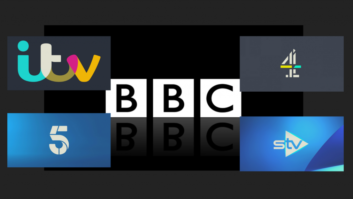In a new report looking at the future of the BBC, Enders Analysis has warned that scrapping the licence fee in favour of a subscription-based model would “undermine a number of tenets of public service broadcasting, most notably universality, breadth of programming and representing the diversity of Britain”.
The analysts note that one of the core concepts of public service television and radio broadcasting is universality.
Under the current model the licence fee is charged for all households that watch live TV (on a TV set or other device) or use the iPlayer. The report states that if the BBC were to become a subscription-only service this concept of universality would be instantly removed, challenging one of the core constructs of public service broadcasting.
It adds that there are around 8 million adults in the UK who either lack the means, or do not wish, to pay for a TV service beyond the licence fee, with around three million of these people living alone, four million belong to the C2DE socio-economic group, and nearly 1.8 million having a disability.
A major consequence of a BBC subscription—either a reduced BBC product and range, or a cost to the viewer that is higher than the licence fee—will disproportionately affect this group, states the report.
If the licence fee were to be replaced by a subscription-model, the analysts say the government would need to implement a conditional access (CA) system to ensure that only households that have paid for a particular BBC package (whether channel, genre, etc.) receive it.
However Freeview, the UK’s largest TV platform, has no CA system in place.
As no TVs in the UK have CA embedded within them, this procedure would have to start from scratch, note the analysts. The report adds that a move to a subscription-based model could also impact Freeview, as viewers may have to switch to a pay-TV service or an online subscription to access the BBC’s channels.
The analysts also considered the idea that certain parts of the BBC’s output could remain as “public service content” such as news and current affairs. “Categorisation along genre lines is crude, but an alternative scenario is one where content could end up being directed to where it can be best optimised: we struggle to see a rationale, other than complying with difficult to enforce regulation, for the BBC to keep any content on free-to-air that it thinks could benefit its paid-for service,” states the report.
“Given that one of the current major attractions of the BBC is its breadth of offering, which includes its news service, the truncated subscription service would hope to offer the best of the ‘public service content’ in order to compete in a tough subscription environment.”
The full report is available for Enders Analysis subscribers to download here.







